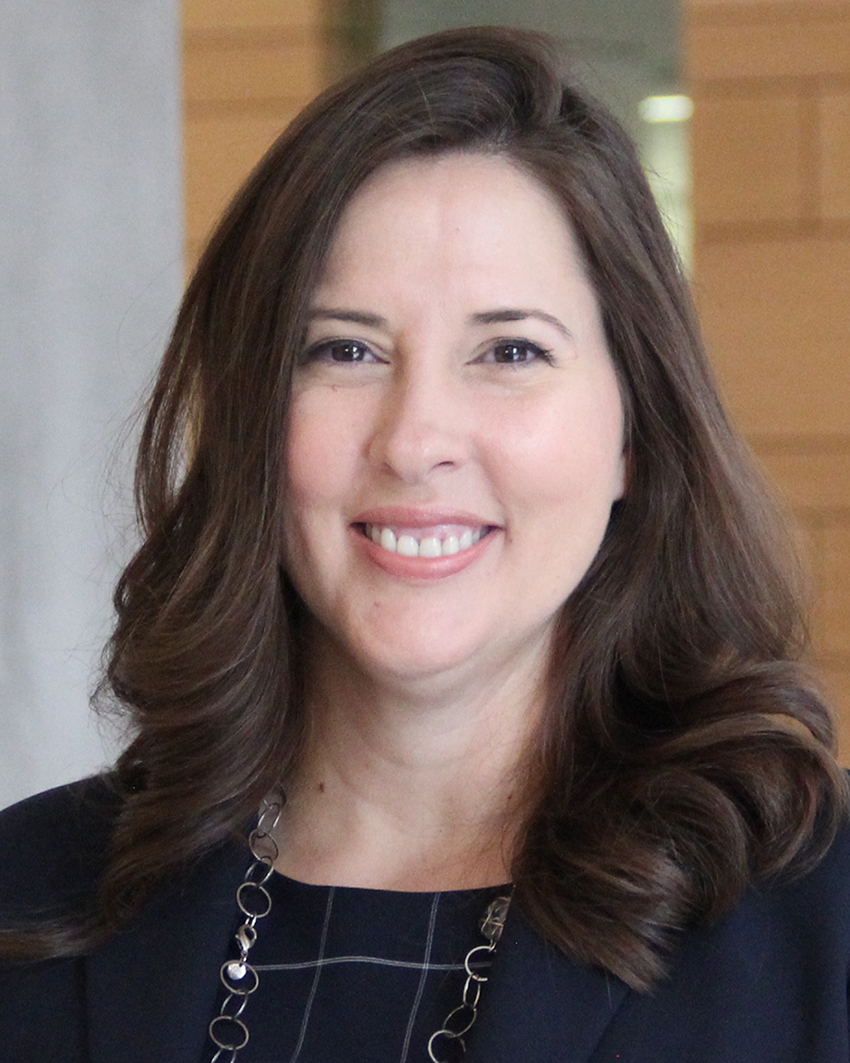Great Leaders Know: Executive Communication Skills Are a Must

Professionals who invest in an MBA program that teaches critical executive communication skills become confident and collaborative leaders with more career opportunities.
Great Leaders Know: Executive Communication Skills Are a MustNot long ago, April Rowsey, who teaches Communicating With Data in Baylor’s online MBA program, heard from a former student who was up for a promotion to vice president. He wanted to present his vision for the role in a way that would set him apart from other applicants.
 April Rowsey
April Rowsey
It is a classic example of career opportunities that call for strong skills in executive communication. The ability to convey information in an engaging way— with a slide doc combining visuals and text in this case—is a critical trait of a leader.
The Communicating With Data course he took with Rowsey—which Rowsey designed—is part of the Executive Communication concentration at Baylor. The track helps students develop leadership skills such as negotiating, listening, handling a crisis and telling the stories embedded in data.
Communication Skills Are in Demand
 Allison Alford“Professionals who invest in these critical skills can expect to move ahead quickly in their careers or more readily find exciting, new opportunities,” says Alison Alford, a clinical assistant professor and consultant who teaches Strategic Communication in Baylor’s online MBA.
Allison Alford“Professionals who invest in these critical skills can expect to move ahead quickly in their careers or more readily find exciting, new opportunities,” says Alison Alford, a clinical assistant professor and consultant who teaches Strategic Communication in Baylor’s online MBA.
“Skilled communicators are able to deepen relationships with organizational members, creating an atmosphere for successful partnerships and teamwork. Professionals who employ effective communication skills are proven leaders in their organizations,” Alford says.
These skills are in demand. GMAC’s 2020 Corporate Recruiters Survey found that four of the top five skills recruiters value the most are communication based. While MBA graduates share many of the same technical skills, it’s the ability to connect that will set them apart.
This was true even during the pandemic. While recruiters sought prospects who were flexible and adaptable, communication stayed in the top third of needed skills.
“The fact that it’s the No. 1 most requested concentration tells me that those in the marketplace are seeing how important communication is to their career advancement,” Rowsey adds.
Practice and Embody Executive Skills
Some people are born communicators—but everyone can become strong at it. Rowsey dreaded being called on in class when she was a student. She wasn’t alone. “Many of Baylor’s graduate students are earning an MBA to move up in their current industry or find success in a new one,” Alford says. That often comes with thoughts of “What am I doing here?” or “Won’t they know that I’m uncertain how to do this?”
“I want anyone with Impostor Syndrome to enroll in this concentration,” Alford says. “Practicing strategic communication—and receiving smart, critical feedback—provides you with the opportunity to grow this skill set.”
In the Executive Communication concentration, students learn the nuts and bolts of communicating strategically. They gain a deeper understanding of what makes people tick and how to reach them.
The Strategic Communication course covers broader communication behaviors of a leader: “writing, presenting, editing, collaborating, giving feedback, delivering bad news, apologizing and dealing with a crisis,” Alford says. “When things are going right, organizations look to the leader to generate new ideas and steer into uncharted territories. When things are going wrong, they’ll expect the leader to toughen his or her backbone and right the ship,” she says. “Practicing these skills and employing them in the workplace can open doors for professionals at all levels.”
They also learn how to negotiate through practice in class and at work. “So much of work outcomes in the marketplace now are driven by the ability to influence, especially with organizations that don’t own things from beginning to end,” Rowsey says.
And students learn how to communicate data, a sought-after skill in today’s market. It’s the “Swiss Army knife of a well-rounded communicator,” she says, usable in every role in every industry at any time. “There’s a very real communication gap on how to make that leap from the raw data to how we use that to inform our decisions in management.”
The Communicating With Data course teaches the latest best practices in communication design. The goal is to reduce the heavy cognitive load of data, making reports easier for stakeholders to absorb.
Communication Is Leadership
For MBA students on the fence about taking the Executive Communication concentration, Rowsey offers a suggestion. “I would ask myself, am I considering a switch into a leadership role, or if I’m already in a leadership role, am I sure I’m taking leadership skills to the next level? Those answers can lead into the concentration,” she says.
“In ‘Data Story,’ a text we use in my course, Nancy Duarte writes, ‘Communication skills are leadership skills.’ Individual contributor roles are great roles and fabulously successful roles. But if you are looking for a position in leadership and to be successful in leadership, you really need to embrace the communication skills,” says Rowsey.
Anyone can pick up a book on the topic—like “Data Story” and Cole Knaflik’s “Storytelling With Data”—and then practice what they learn on the job. But the Executive Communication concentration dives much deeper. It maps out a journey through the texts and offers a place to be challenged and to practice with peers.
An effective MBA program covers a lot of territory beyond technical acumen: integrity, communication, courtesy, responsibility, social skills, positive attitude, professionalism, flexibility, teamwork and work ethic. That’s because the higher you climb on your career ladder, the more time you’ll spend managing people. Baylor’s OMBA students have a decade of professional experience.
“The Executive Communication concentration provides them with the tools to manage people and ‘act’ like the executive they want to be,” Alford says. “It may feel awkward at first, like putting on a new suit that feels a little different than comfy clothes. But just like we say, ‘Dress for the job you want,’ this is outfitting yourself with the communication skills for the executive position you desire. In this program, you can become whoever you want to be and reach new heights in your career.”